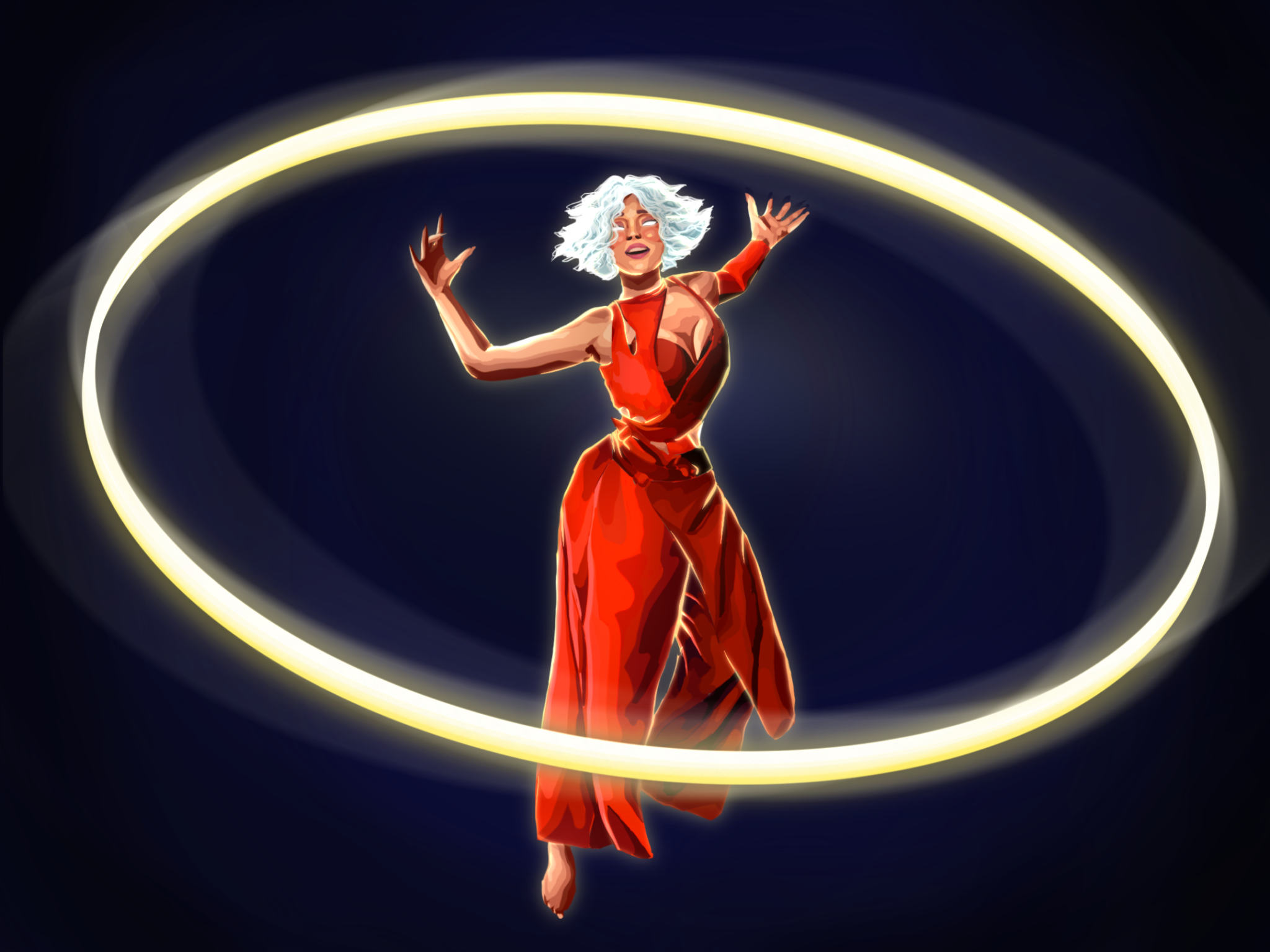
Cate Roser
It’s been 10 days, but I still can’t stop watching Doja Cat’s last VMAs performance. She’s celestial, breathtaking and yet somehow grounded — metaphorically — all at once. Suspended thirty feet in the air, with a planetary ring all her own surrounding her, she is marvelous. Her music has reached its next stage with “Planet Her” — complete with a gravitational pull impossible for audiences to resist.
The artist is no stranger to the awards show performance. Her past productions have ranged in genre from Broadway musical to grunge rock to futuristic — alien — melodic hip-hop, but one thing remains constant. No, I’m not talking about her song choice. She’s finally been blessed by the award gods with the opportunity to perform new songs. I’m talking about how conceptually strong each performance is.
In an interview with GQ, Brett Alan Nelson — Doja’s creative director — remarked on how her Billboard Music Awards performance was a strategic decision. That performance, which borrows both imagery and instrumentation from the musical — and later film — “Chicago,” directly nods at the singer’s personal life. Between homophobic slurs and questionable activities in right-wing spaces, many people who are aware of pop culture know about the singer’s contentious behavior… And yet, she still remains at the center of the cultural conversation. Perhaps that’s the mark of a true star. “Chicago,” for the unfamiliar, centers on Roxie Hart, and how she forges fame out of scandal. It’s a fitting concept for the controversial Cat. She winks at those who — sometimes rightly — critique her while simultaneously elevating her pop stardom higher.
Another one of her most popular performances was at the MTV Europe Music Awards, where she performed — like many other times — a revamped version of “Say So.” This performance, however, was by far the furthest deviation from the original track. The artist turned the disco pop jam into a grunge, alternative rock song to astounding effect. Doja scream-sings into a mic while standing in a tattered dress in a field full of flowers. This aesthetic brings out the rage that flows underneath the otherwise upbeat song. In that way, the song seems less about convincing someone to confess their feelings and more about the frustration that arises when people aren’t upfront about what they want. She’s able to bend and change the meaning of the song through nothing other than how she presents it, which might actually be both an artistic and a practical choice. Fans have often speculated that the different aesthetics she employs are a way for her to avoid getting bored of performing — usually — the same song over and over. Is this true? Who knows. As long as it keeps creating performances that are incredibly entertaining, I won’t be mad.
I’d be remiss if I wrote this article without mentioning her Grammy’s performance, which also happened to be when she revealed the title of her newest album — “Planet Her” — another indicator of how important live performances are to her artistry. Although this performance has one of the best intro instrumentations I’ve ever heard, I want to focus instead on what she says before the performance’s start. In total darkness, we hear Doja’s voice — powerfully sounding out into the world. She declares that she hasn’t “been waiting for this [her] whole life, [she’s] been preparing.” It’s an apt description of what audiences may think when they see Doja Cat onstage. Here is someone whose life seems as if it has been leading up to this moment. This is what she was meant to do. She has revolutionized the art of the awards show performance.







